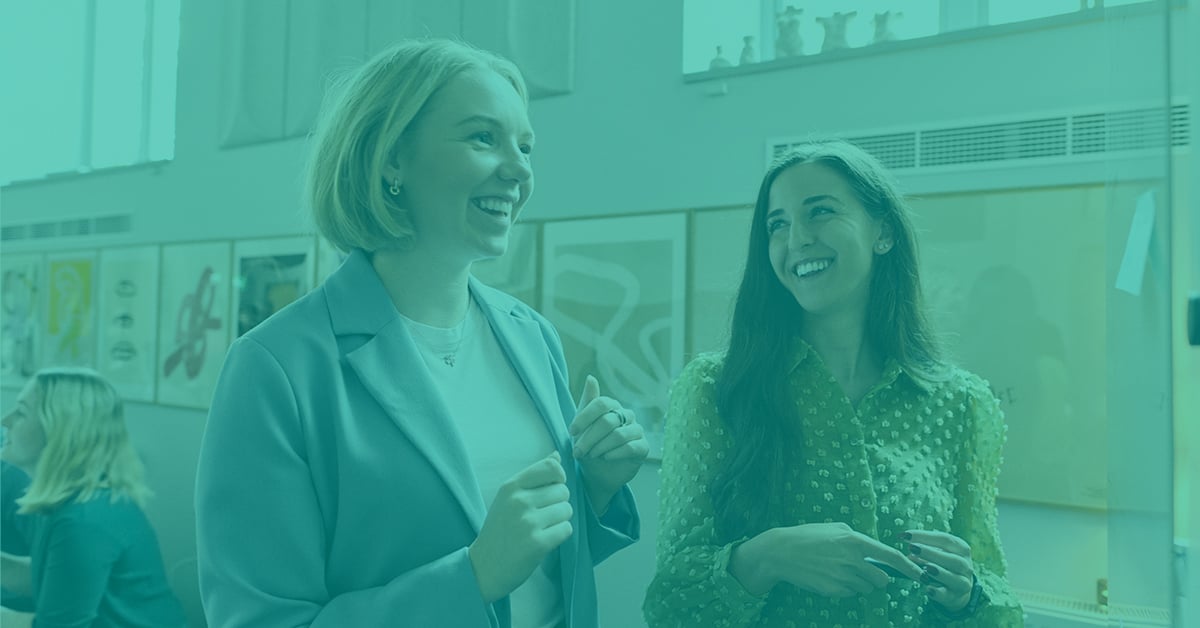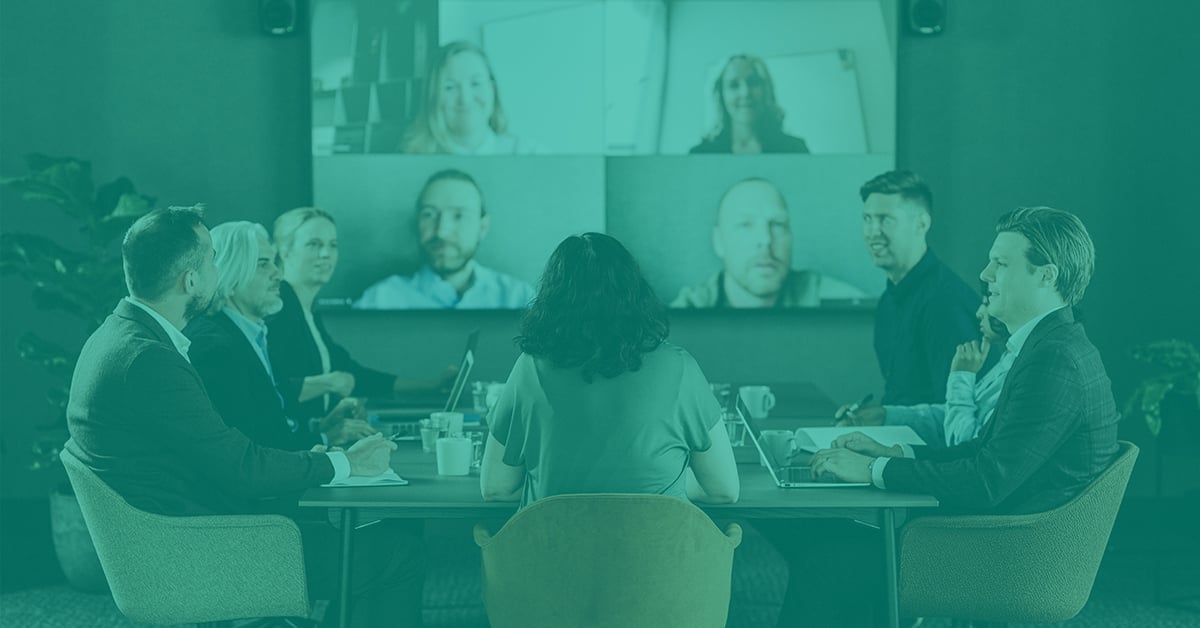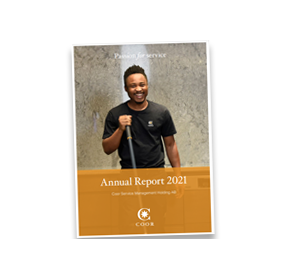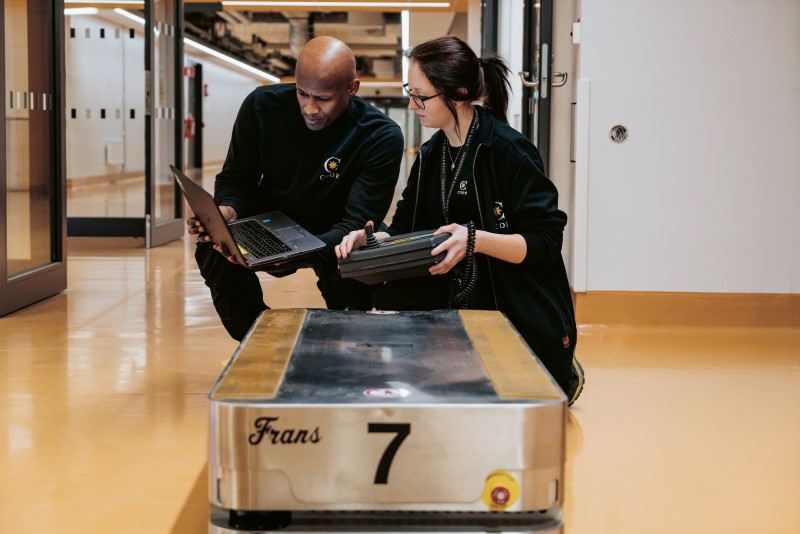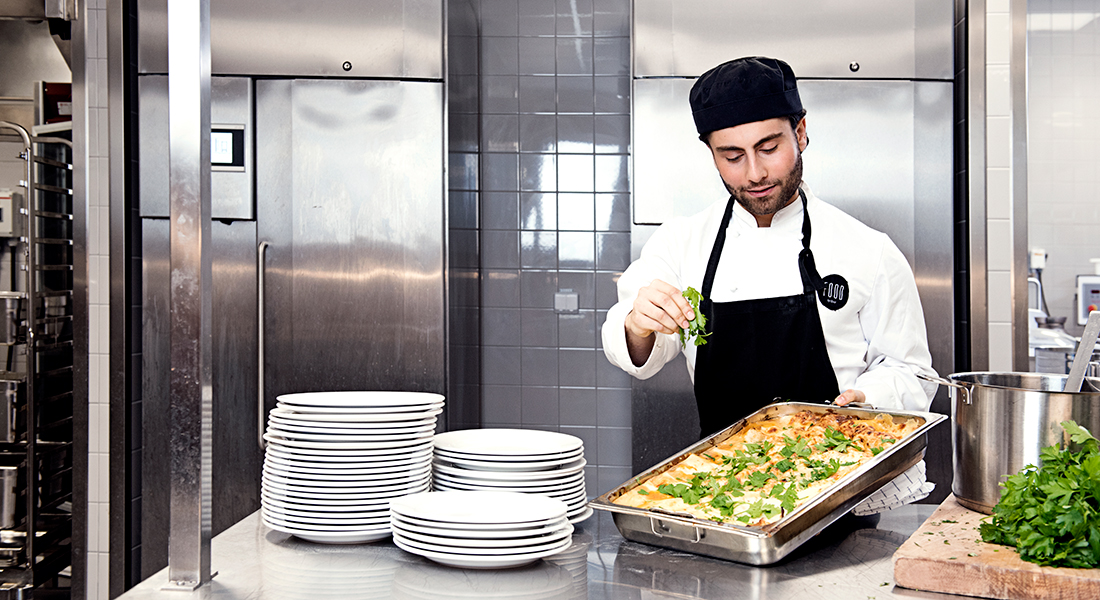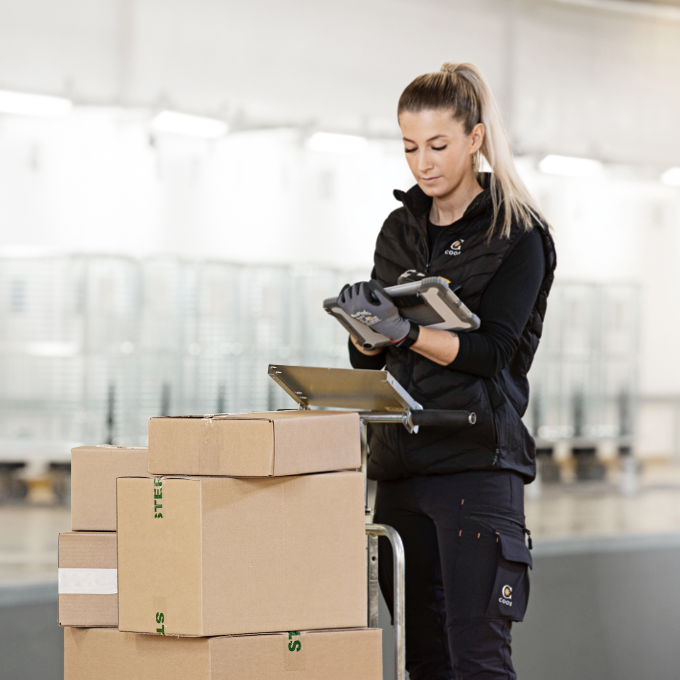Increased automation and flexibility in the IFM of the future
More and more companies are discovering the benefits of integrated facility management and are purchasing services in different service areas from the same supplier. With over 20 years' experience of such full-service solutions, Coor is today the leading IFM supplier in the Nordic region and a reliable partner. In order to continue improving the working day for millions of people in the Nordic region, Coor keeps track of industry trends and sees an increased interest in sustainability, flexibility and automation.
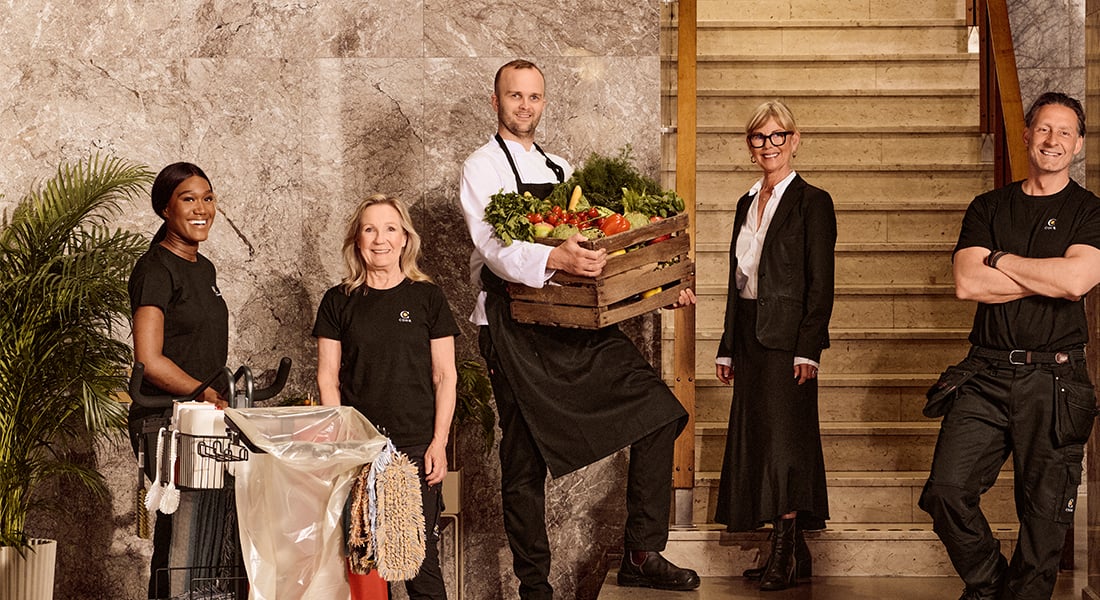
IFM by Coor in numbers
31%
of our turnover comes from public customers, and 69% from private.
57%
IFM's contribution to Coor’s turnover.
(Per December 31, 2022)
Jens Ebbe Rasmussen, Coor's Senior Vice President, Business Development, on the trends that are shaping the IFM deliveries for the coming years.
Six trends characterise the IFM of tomorrow
A changing world and professional roles that are continuously developing bring about changed needs in our workplaces. Not only do IFM providers need to keep track of these to be relevant, but also employers who want to attract and retain the right talent.
A leading IFM supplier like Coor has both the experience and the required resources to adapt deliveries to new needs. We are a trusted partner who, thanks to our many years in the industry, have developed effective processes, methods and tools that help us deliver the service our customers need to focus on what they do best. Thanks to our early collaboration with innovative start-ups, we can offer several smart services that save money and natural resources. And by constantly being responsive to new needs and opportunities, monitoring the world around us and working closely with both customers and service employees, we have a good grasp of the trends that will characterise the industry in the coming years.
To meet the needs of the market, we focus our follow-up and development on the following areas: 360-degree perspective on sustainability, existing data - the road to automation, employee focus with tailored experiences in the office, requirements for rapid changes, increased demand for agreements according to a partnership model and advice on more than workplace design.
Read more about each area below.

360-degree perspective on sustainability
Sustainability work continues to be an important element within IFM - just as in other industries, it is about having a holistic approach that permeates all parts of the business.
At Coor, a sustainability perspective is included in everything we do and we use the Triple Bottom Line model to create value in a social, environmental and business dimension.
In recent years, the environmental dimension has received a lot of focus, among other things due to the Paris Agreement and challenges regarding energy supply. We work with Science Based Targets and have a close collaboration with innovative startups to solve both our own and our customers' environmental challenges.
"More employers will need to hire outside the box to find the right talent and utilise all the skills available in society."
We are also noticing an upswing in social sustainability, which will be prioritized even more in the future. The focus will be both on creating a sustainable work situation for existing employees, but also on welcoming new employees who have been far from the labor market. This may, for example, involve a functional variation or a different linguistic background. More employers will need to hire outside the box to find the right talent and utilise all the skills available in society.
Coor grows through diversity
“Diversity makes us stronger as a company and we value the different personalities, backgrounds, experiences and expertise of our more than 12,000 employees. More perspectives help us make better decisions and increases customer satisfaction.”
Coor commits to Net-Zero by 2040
This is ten years earlier than the Science Based Targets initiative’s requirement for companies. To reach the target, we need to eliminate greenhouse gas emissions in our own operations and reduce carbon dioxide emissions from the entire value chain by 90% compared to 2018.
Coor links sustainability targets to its loans
This means that Coor will have to pay lower interest rates if the company achieves its goals in social and environmental sustainability.

Data - the road to automation
Large amounts of data are already being collected through different types of sensors in our workplaces. By combining existing data with automation processes, we can find more efficient solutions that facilitate future service needs.
"Data-driven cleaning enables cleaning efforts adapted to needs instead of controlled by frequency."
In cleaning services, we can combine historical data on the number of people using a space with weather forecasts to estimate how dirty the floors are expected to be. This is an example of data-driven cleaning that enables cleaning adapted to needs instead of controlled by frequency. The result is a cleaner impression, which leads to more satisfied customers who get more bang for their bucks. It also reduces unnecessary wear and tear on floor surfaces, for example, which can have a shorter lifespan if they are cleaned too rarely or too often. Sensors and connected devices can also add significant value in property maintenance.
The collection of information creates greater value in the long run; by finding relevant areas within an organisation, there is potential for time and cost efficiency. Technology that allows us to be more proactive instead of doing things according to a certain schedule means that services are of higher quality, higher reliability and also become cheaper.
Into the future with BIM
The future has arrived in the construction and property sector. Over the coming ten years, digitalization will turn the sector upside down.
Efficient data analysis with Coor SmartEnergy
The energy consumption of a property can be reduced by over 40%. We help you to collect and analyze data to make your properties more energy efficient.

Employee focus with tailored experiences in the office
Many employers ask how they can create the best conditions for wellbeing and job satisfaction for their employees in the office. After the pandemic, more and more people have become accustomed to working remotely and performing more tasks.
"Services that make life easier or add value attract people to the office."
Many companies strive to bring their employees back to the office in order to build corporate culture and loyalty. They also want people to meet and collaborate. Therefore, we see an increased demand for services that employees and others in the workplace use. Services that make life easier or add value attract people to the offices. This could, for example, involve having a barista at work, offering massages or a cat hotel, making it possible for employees to drop off clothes at the dry cleaners or buy dinner from the lunch restaurant. The possibilities are endless.
We predict that the end user's experiences will have an even greater focus in the future. A development we at Coor welcome and are well prepared for. Already a couple of years ago, we started including XLAs, experience level agreements, in some of our contracts.
Experiences give the workplace a boost
XLA, or Experience Level Agreements, provide a method that helps companies to monitor the user experience in the workplace.
The CX Challenge
The CX Challenge is one of the ways we are innovating the FM industry. In the challenge, Coor employees from all the Nordic countries pitch their most promising innovation to a jury and can potentially receive seed funding to take the idea further.
Learn more ➝
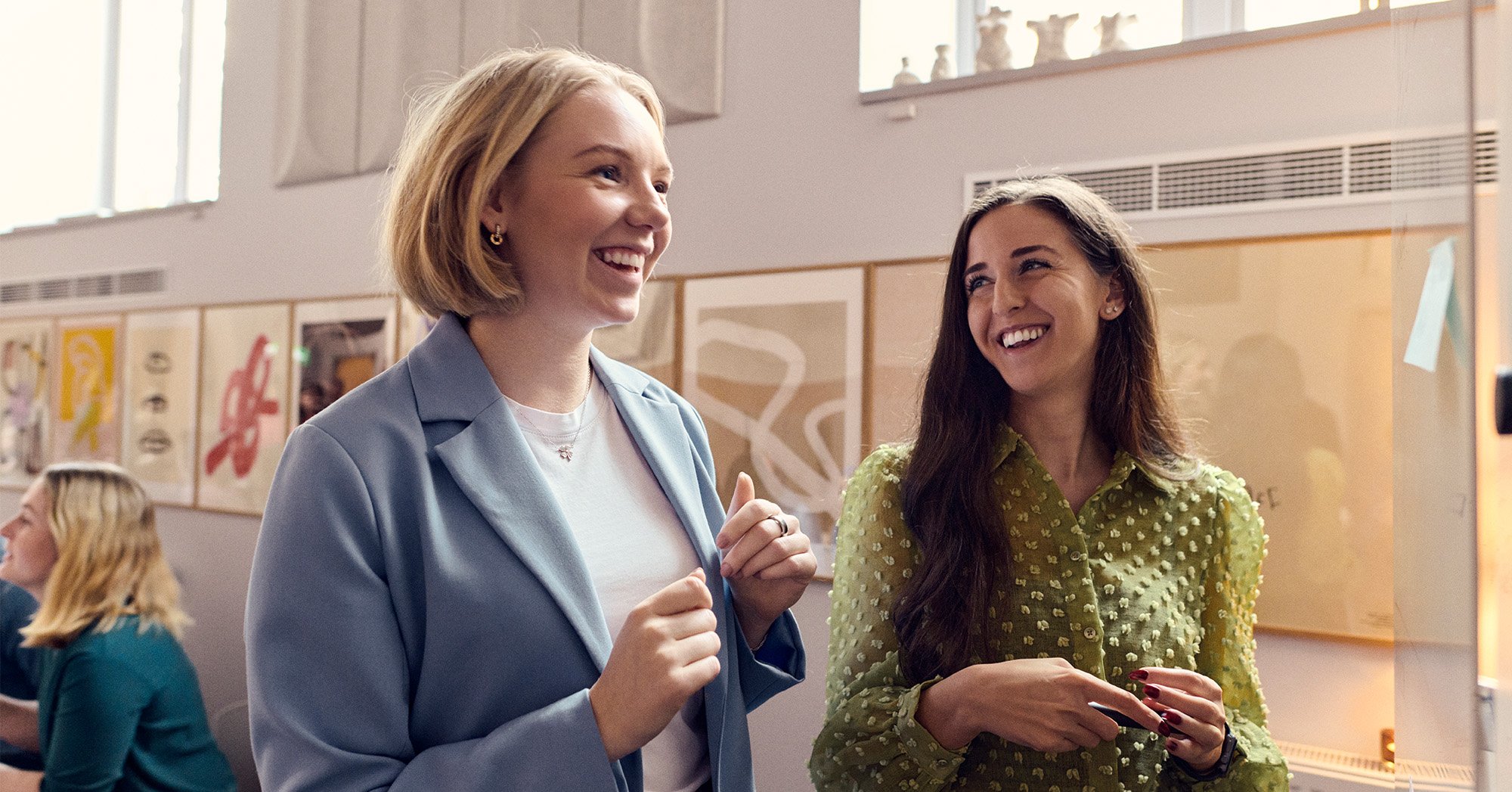
Advice on more than workplace design
Increasingly, clients need guidance on how to manage the new hybrid way of working. Customers are grappling with questions such as what kind of meeting rooms and technical equipment they need when half of the meeting participants are remote. They also need to understand the drivers that make their employees choose to come into the office. In our Join the Workplace Revolution report, 70% of employers say they are experiencing difficulties getting staff into the office, an increase of 18% from last year's survey. At the same time, a third of the employees respond that they are considering changing employers if the office is not modernised in the coming years.
Factors that increase the propensity to go to the offices include more quiet rooms, reduced noise levels and improved ergonomics. To help companies understand what can attract their employees back and which future office investments create the most value, there is Coor Advisory, where you find our workplace consultancy experts.
"More and more employers are looking for advice on how to improve the wellbeing of their employees."
Coor Advisory helps our customers to reduce costs and climate footprint by optimising their office space. We are also noticing an increased demand from employers who want help to improve their employees' wellbeing.
Environmental sustainability in the workplace
Coor's workplace expert Trine Hagfors explains why successful sustainability work will be crucial in the future.
The workplace revolution is here!
It's time for the employers to create attractive offices from the needs of their employees. Coor knows what's important: smart, sustainable and functional workplaces that encourages well-being, human interaction, creativity and innovation.
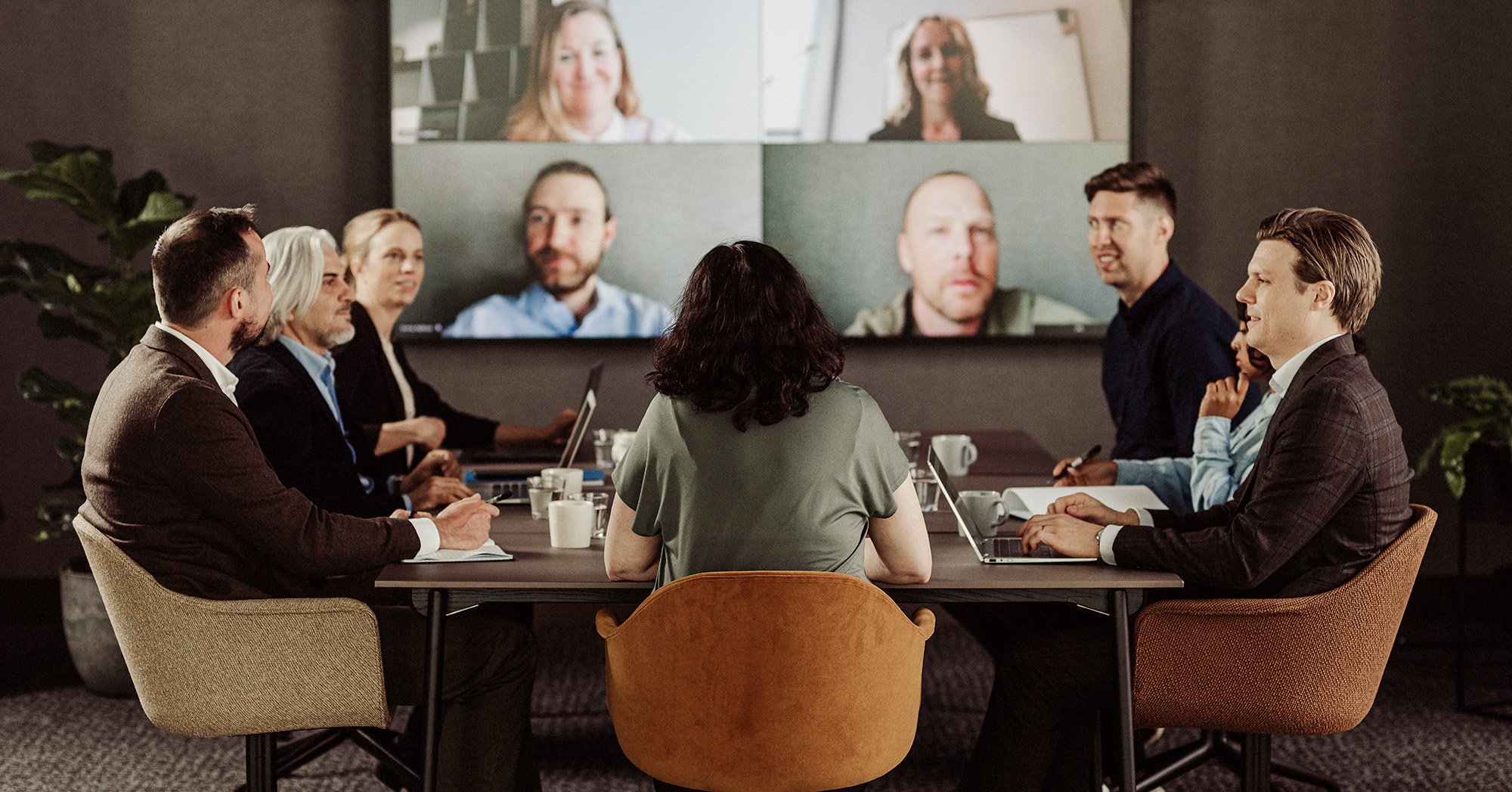
Increased demand for agreements according to a partnership model
More and more customers are demanding a more dynamic and value-creating business model than the one that has historically dominated the IFM industry, where the customer specifies its needs and receives a quote from the supplier. Together with our customers, we are steering the development towards a partnership model where we focus on what the customers want to succeed with instead of exactly what instruction we should have in each service. In such a model, we agree on objectives that enable continuous improvement and more transparent pricing based on incentives.
Examples of common objectives could be to increase office attendance by a certain percentage or that we as a supplier should proactively work to fix errors and deficiencies before the customers even notice them. If we reach the goals, it will be a win-win for everyone involved, from us as a supplier to the customers, their employees and visitors.
"Through transparent and close collaboration, we can develop better solutions that benefit both us and our customers."
The advantages of a partnership model rather than a traditional contract are numerous: it is easier to adjust the delivery in the event of a pandemic or other unforeseen event, it is faster to take advantage of new technology and the collaboration becomes closer and more solution-oriented. When we work towards the same goal, we share both opportunities and risks. Through transparent and close collaboration, we can develop better solutions that benefit both us and our customers.
We share ownership of successes as well as challenges
They spend the whole working day together, cover for each other and strive towards the same goal – but have different employers.
Innovative business model for outsourcing at Storebrand
Coor and Storebrand have jointly built up a new business model based on a strategic partnership.

Requirements for rapid changes
As our workplaces are constantly changing, the need for services also varies. Therefore, there are often clauses in IFM agreements with agreements on how a changeover should take place under different scenarios.
If a customer wants to expand their workplace by 20,000 square meters and also needs, for example, a new restaurant and a larger reception, it is important for us to be able to quickly help with the transition. More square meters requires more cleaning. Sometimes it is the reverse change the customer wants help with and then we need to handle it.
"It's about being able to change, innovate and reorganise based on changed conditions, both small and large."
It is becoming increasingly common for companies ordering IFM services to request flexible solutions that can be customised. Therefore, IFM providers need to move away from static contracts and offer some flexibility, be responsive to changing needs and willing to test different ideas. It's about being able to change, innovate and reorganise based on changed conditions, both small and large.
New restaurant provides creative meeting places
Following a period of major expansion, Danish company GN Store Nord found itself short of space. Coor found a solution that utilized existing floor space and created a new restaurant that’s pleasant to spend time in, provides meeting spaces and meets the company’s sustainability targets.
Three smart steps towards preventing energy thieves in properties
Numerous energy thieves lurk in our workplaces and facilities, including machinery that remains operational after working hours and premises that are heated unnecessarily. This implies significant savings potential from making the properties more energy-efficient. Digitalization and smart technology can help with this.
We take care of your IFM!
Visit one of our local sites if you are interested in what Coor can do for you in your country:




